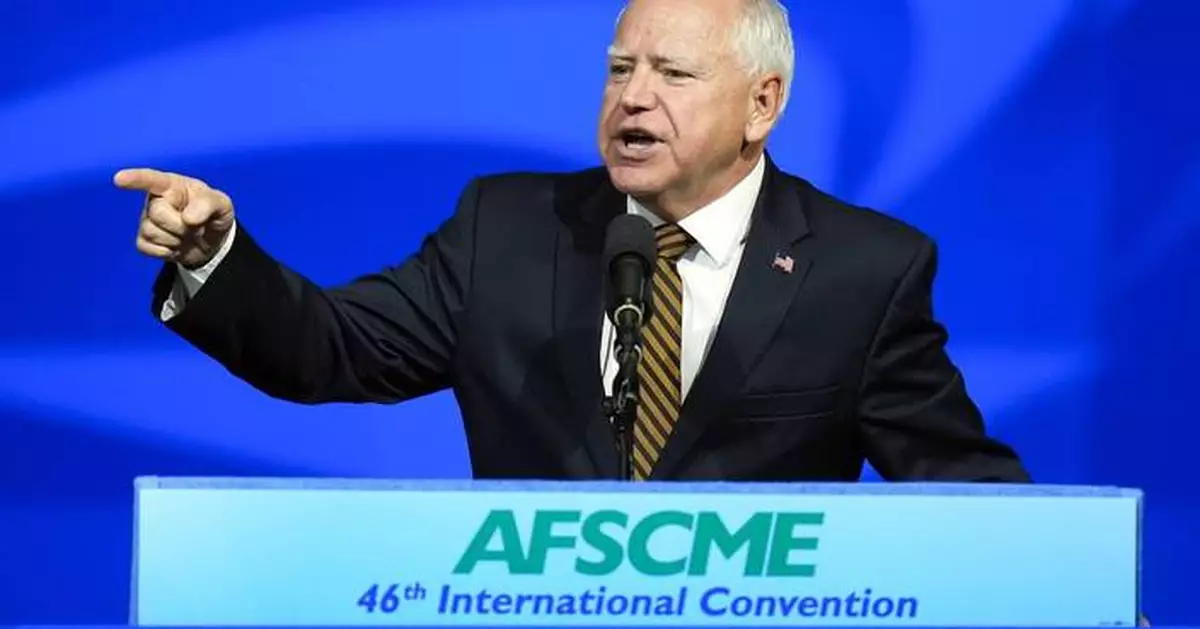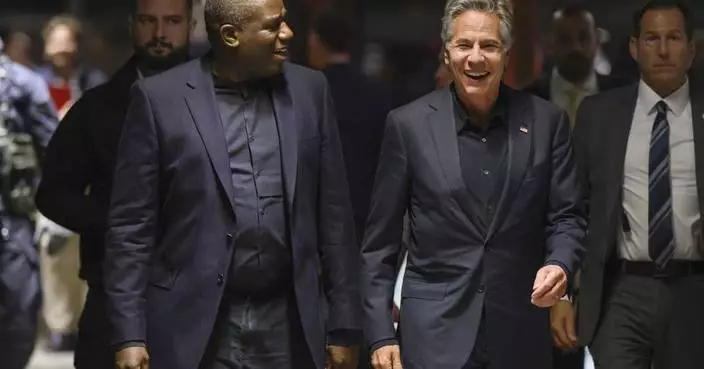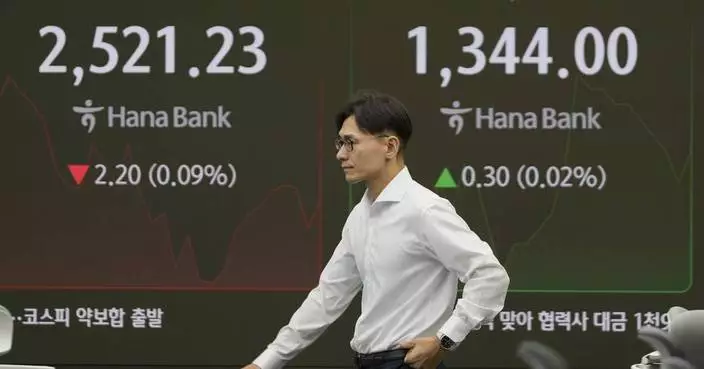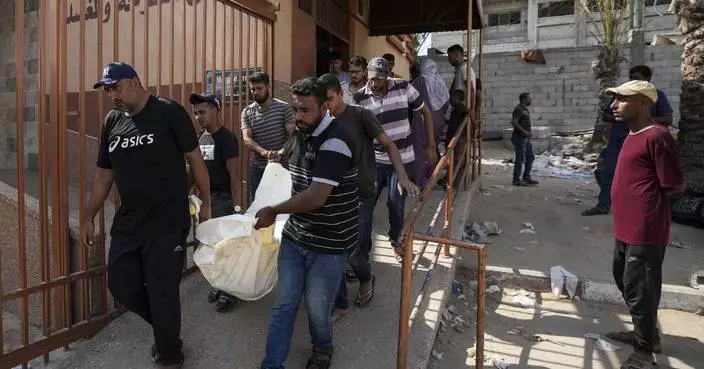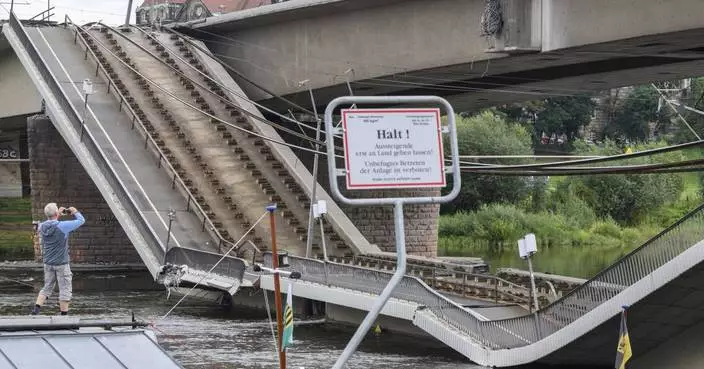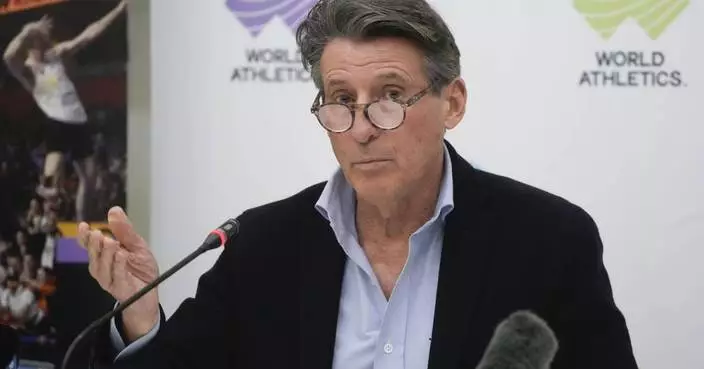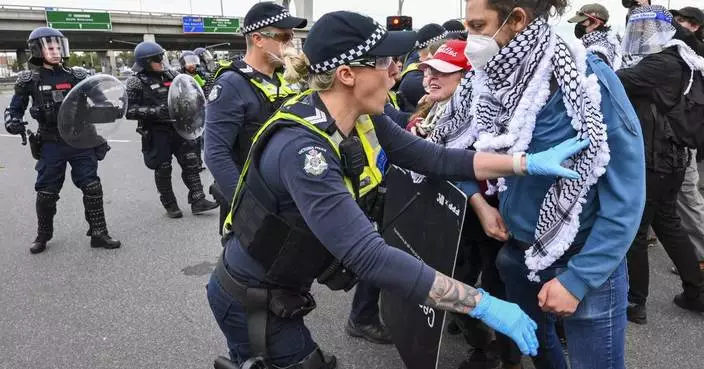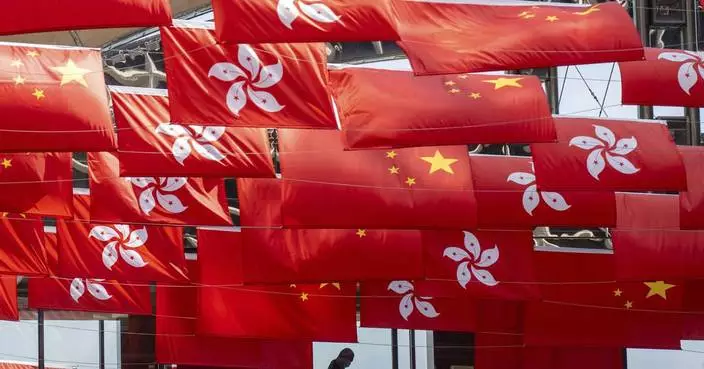COLUMBIA, S.C. (AP) — Minnesota Gov. Tim Walz and Ohio Sen. JD Vance have agreed to debate each other on Oct. 1, setting up a matchup of potential vice presidents as early voting in some states gets underway for the general election.
And Vice President Kamala Harris has forecast the scheduling of a second debate between Donald Trump and herself, although that matchup appeared to be contingent on the GOP nominee participating in an already scheduled Sept. 10 debate with Harris.
CBS News on Wednesday posted on its X feed that the network had invited both Vance and Walz to debate in New York City, presenting four possible dates — Sept. 17, Sept. 24, Oct. 1 and Oct. 8 — as options.
Walz reposted that message from his own campaign account, “See you on October 1, JD.” The Harris-Walz campaign followed up with a message of its own, saying Walz "looks forward to debating JD Vance — if he shows up.”
Vance posted on X that he would accept the Oct. 1 invitation. He also challenged Walz to meet on Sept. 18.
Officials with the Harris-Walz campaign did not immediately return a message seeking comment on Vance’s acceptance of the earlier debate that he said would be on CNN or whether Walz would participate in that one as well.
Representatives for CNN confirmed that Vance had accepted the network's debate invitation.
“CBS Evening News” anchor Norah O’Donnell and Margaret Brennan of “Face the Nation” will moderate the Oct. 1 debate, according to the network.
Whether or not Walz and Vance would debate before the Nov. 5 general election had been in question. In just the past several weeks, President Joe Biden left the campaign and Democrats selected Harris to lead their ticket.
Vance has largely kept his focus trained on Harris, whom he would have been set to debate before Biden's departure from the race. Vance has lobbed critiques against Walz, including questioning the retired Army National Guardsman's service record.
Trump has said he wanted Vance to debate Walz on CBS, which had been discussing potential dates for that meeting.
The debate is expected weeks after the Sept. 10 top-of-the-ticket debate recently solidified between Trump and Harris on ABC News.
Trump has said he negotiated several other debate dates, on three different networks. Fox News has also proposed a debate between Harris and Trump to take place on Sept. 4, and NBC News is angling to air one on Sept. 25.
During an appearance in Michigan, Harris said she was “happy to have that conversation” about an additional debate.
On Thursday, Harris' campaign said Trump had “accepted our proposal for three debates,” meaning one between the vice presidential running mates in addition to two presidential debates. Provided that Trump follows through on participating in the Sept. 10 ABC debate, Harris-Walz spokesperson Michael Tyler said that "the American people will have another opportunity" to see Harris and Trump on the debate stage in October, without mentioning a specific date or network.
Neither campaign immediately responded to a message seeking comment on whether a date or network had been agreed to for a second presidential debate.
AP Media writer David Bauder in New York contributed to this report.
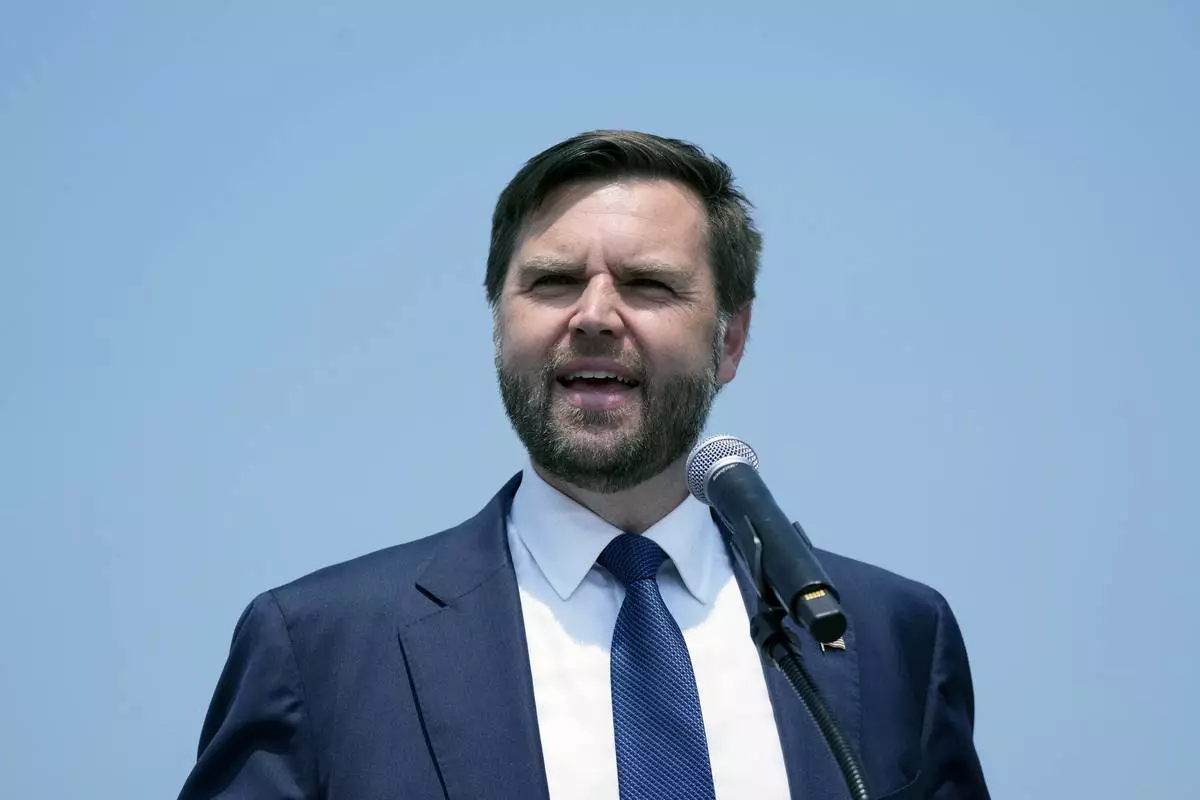
Republican vice presidential nominee Sen. JD Vance, R-Ohio speaks at a campaign event, Wednesday, Aug. 14, 2024, in Byron Center, Mich. (AP Photo/Carlos Osorio)
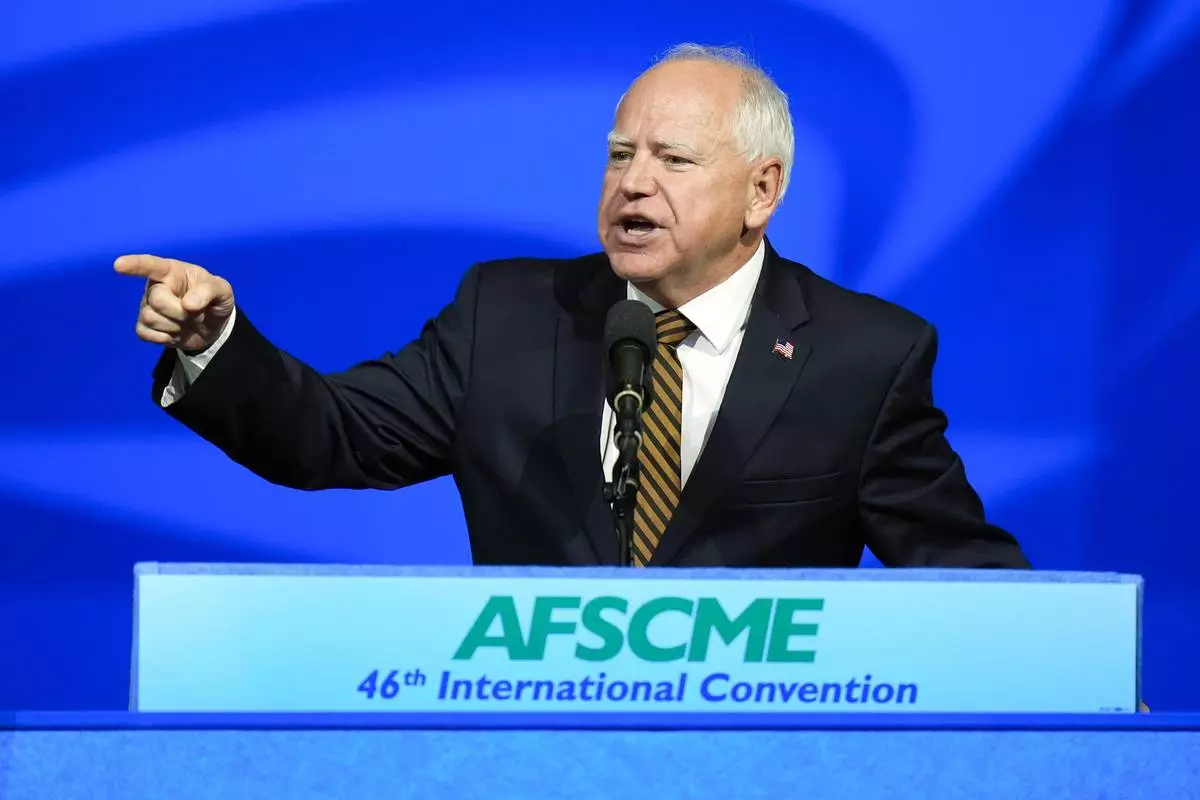
Democratic vice presidential nominee Minnesota Gov. Tim Walz speaks at the American Federation of State, County and Municipal Employees (AFSCME) Convention in Los Angeles, Tuesday, Aug. 13, 2024. (AP Photo/Jae C. Hong)
BAGHDAD (AP) — Iran's reformist President Masoud Pezeshkian on Wednesday kicked off his first trip abroad as president, hoping to cement Tehran's ties to Baghdad as regional tensions increasingly pull both countries into the widening Middle East fray.
For Iran, its relationship with Iraq remains crucial for economic, political and religious reasons — something that has especially been true since the U.S.-led 2003 invasion of Iraq toppled dictator Saddam Hussein, who launched a bloody, yearslong war against Iran in the 1980s.
Baghdad, meanwhile, has been trying to balance its relationship with Tehran, which backs powerful Shiite militias in the country, as well as with the United States, which maintains a force of 2,500 troops in Iraq that remain in battle with remnants of the once-dominant extremist Islamic State group.
The American troops remain both a literal and rhetoric target for Iran, particularly as Israel's nearly year-old war on Hamas in the Gaza Strip grinds on.
Ahead of Pezeshkian's arrival, an explosion struck a site near Baghdad International Airport used by the U.S. military on Tuesday night. There were no reported casualties and the circumstances of the explosion were unclear.
The U.S. Embassy said the explosion was at the Baghdad Diplomatic Services Compound, an American diplomatic facility, and that it was “assessing the damage" and the cause of the blast.
During his trip, Pezeshkian, who was sworn in as Iran's new president in July, is also due to visit Shiite shrines in the cities of Karbala and Najaf, a railroad project to link the southern city of Basra to Iran and Irbil, the capital of Iraq's semiautonomous northern Kurdish region.
Ahead of the trip, Iran's Foreign Minister Abbas Araghchi told an Iraqi television channel that Pezeshkian hoped to tighten security relations with Baghdad, as well as economic ties.
“We want to see Iraq develop, grow, be prosperous and strong on our borders, and any economic project that achieves this goal enjoys our support,” Araghchi told Al-Furat Television, owned by Iraqi Shiite cleric and politician Ammar al-Hakim.
Still, there have been tensions between Iran and Iraq, particularly after Iranian missiles hit sites in Iraq in attacks over the past six years, targeting Kurdish militias, a base housing American forces and also what Tehran alleged were Israeli sites in Iraq.
Iran also fired missiles and flew drones over Iraq in its unprecedented direct attack on Israel in April. That attack followed a suspected Israeli strike on an Iranian diplomatic compound in Damascus, Syria, that killed two Iranian generals and five officers, as well as a member of the Lebanese Shiite militia Hezbollah, an Iranian ally.
The Islamic Republic has also threatened further retaliation against Israel over the July assassination of Hamas leader Ismail Haniyeh in Tehran, which could include another missile barrage.
For Iraq, close ties with the Shiite powerhouse next door are also needed to maintain Baghdad's supply of imported Iranian natural gas to meet its electricity needs. A barter deal for Iraqi crude oil has seen the supply continue, though U.S. sanctions targeting Tehran over its rapidly advancing nuclear program have put pressure on Baghdad.
Meanwhile Tuesday, the United States and Britain formally accused Iran of supplying short-range ballistic missiles to Russia to use against Ukraine, announcing new sanctions on both Moscow and Tehran.
The continued presence of U.S. troops in Iraq remains a concern for Iran. Since the Israel-Hamas war broke out on Oct. 7, Iraqi militias allied with Iran have targeted U.S. forces here, leading to American airstrikes targeting the militias.
Iraqi politicians continue to debate the issue of whether to back having American troops remain in the country.
Associated Press writers Nasser Karimi in Tehran, Iran, and Jon Gambrell in Dubai, United Arab Emirates, contributed to this report.
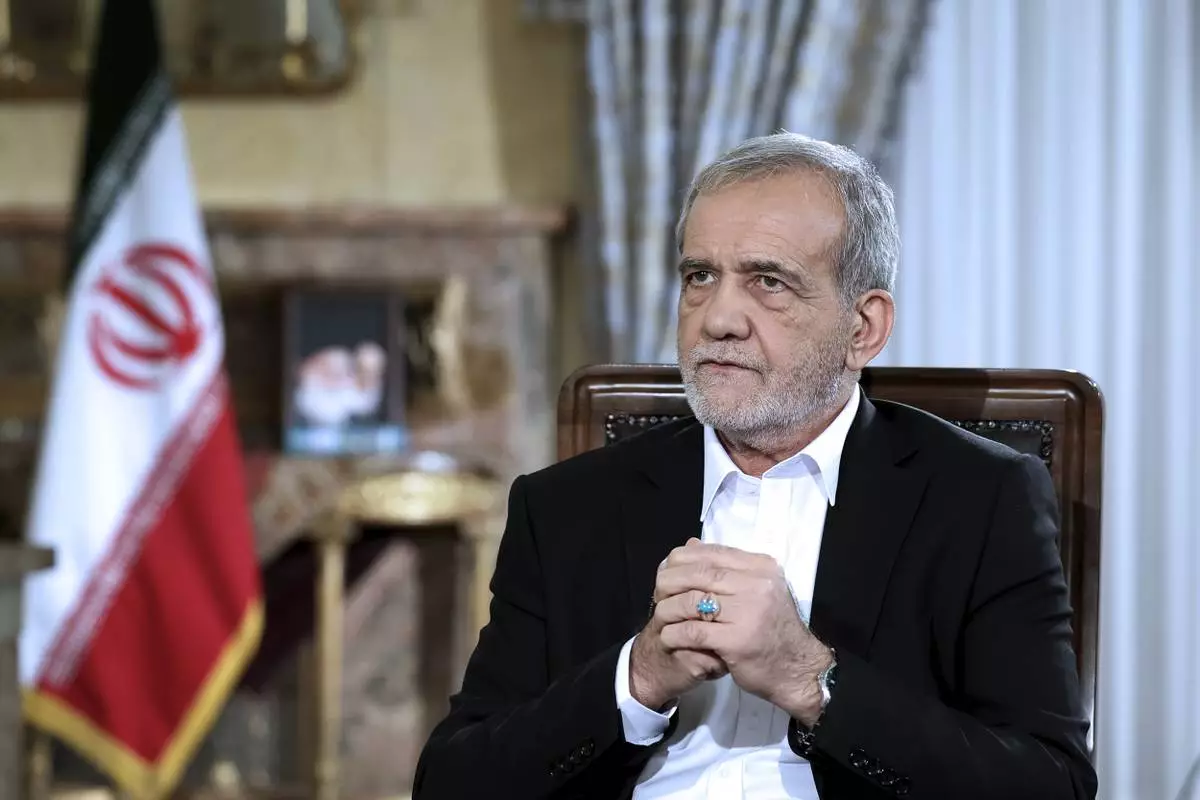
In this photo released by the Iranian Presidency Office, President Masoud Pezeshkian speaks in a live televised interview by state TV, at his office in Tehran, Iran, Saturday, Aug. 31, 2024. (Iranian Presidency Office via AP)




